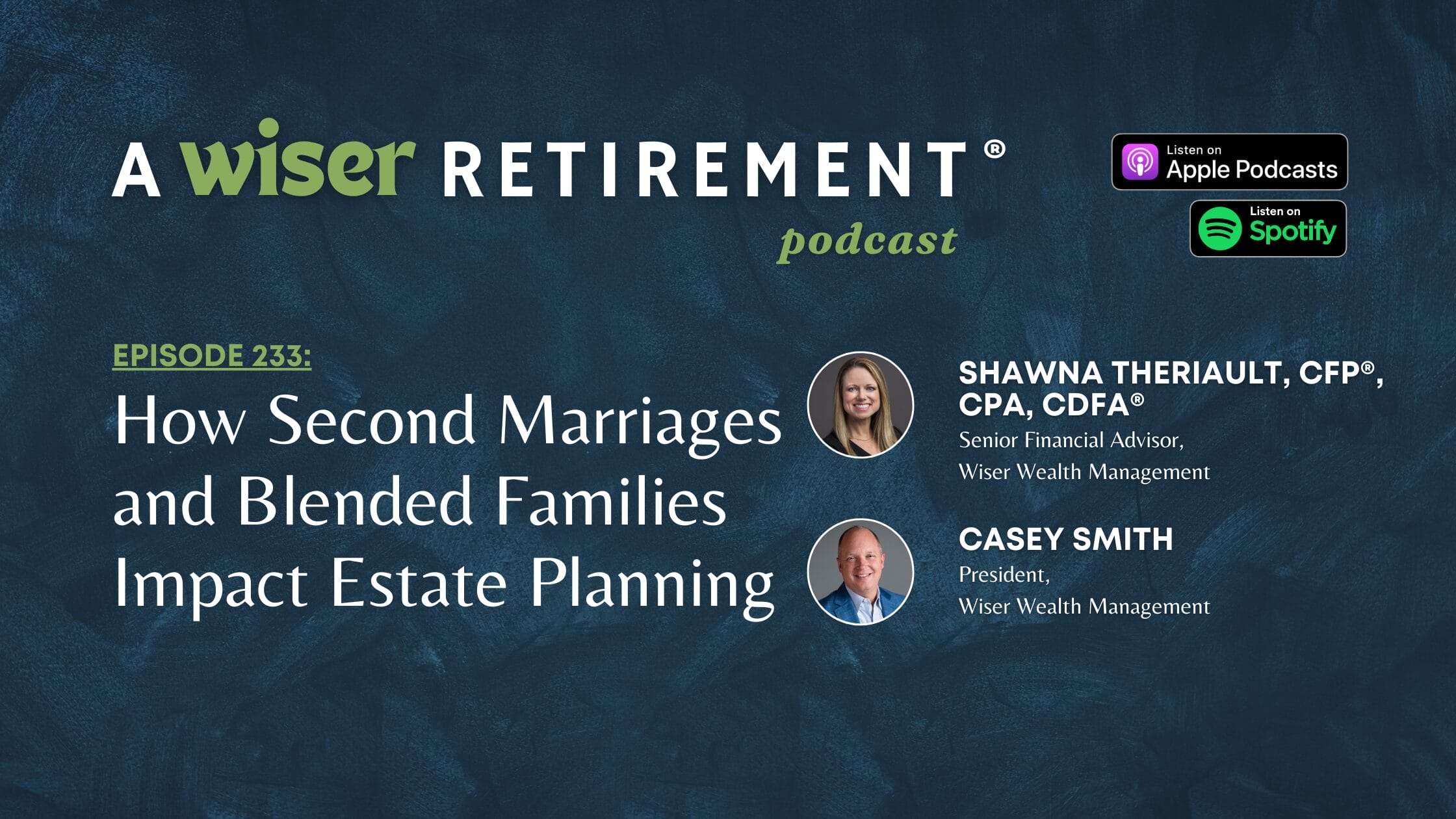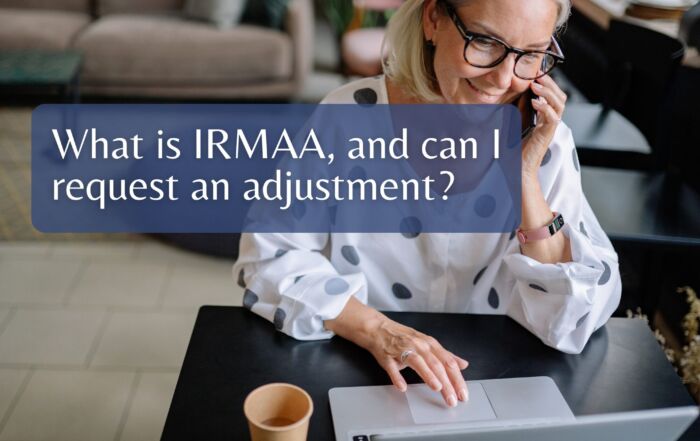
How Second Marriages and Blended Families Impact Estate Planning
On this episode of A Wiser Retirement® Podcast, we talk about how second marriages and blended families impact estate planning Casey Smith and Shawna Theriault, CFP®, CPA, CDFA®. They also discuss how to safeguard your family’s future, avoiding probate pitfalls, and the often-overlooked risk of unintentionally disinheriting children from a previous marriage.
Listen or Watch:
Summary
Links:
- Click here to download one of our free guides that covers financial planning topics like retirement, investing, taxes, divorce, and more!
Connect:
- Click here to schedule a consultation with one of our financial advisors.
- Follow us on social media: Twitter, Instagram, Facebook, LinkedIn, and YouTube.
- Learn more about A WiserRetirement® Podcast and access previous episodes.
Share This Story, Choose Your Platform!
Wiser Wealth Management, Inc (“Wiser Wealth”) is a registered investment adviser with the U.S. Securities and Exchange Commission (SEC). As a registered investment adviser, Wiser Wealth and its employees are subject to various rules, filings, and requirements. You can visit the SEC’s website here to obtain further information on our firm or investment adviser’s registration.
Wiser Wealth’s website provides general information regarding our business along with access to additional investment related information, various financial calculators, and external / third party links. Material presented on this website is believed to be from reliable sources and is meant for informational purposes only. Wiser Wealth does not endorse or accept responsibility for the content of any third-party website and is not affiliated with any third-party website or social media page. Wiser Wealth does not expressly or implicitly adopt or endorse any of the expressions, opinions or content posted by third party websites or on social media pages. While Wiser Wealth uses reasonable efforts to obtain information from sources it believes to be reliable, we make no representation that the information or opinions contained in our publications are accurate, reliable, or complete.
To the extent that you utilize any financial calculators or links in our website, you acknowledge and understand that the information provided to you should not be construed as personal investment advice from Wiser Wealth or any of its investment professionals. Advice provided by Wiser Wealth is given only within the context of our contractual agreement with the client. Wiser Wealth does not offer legal, accounting or tax advice. Consult your own attorney, accountant, and other professionals for these services.





